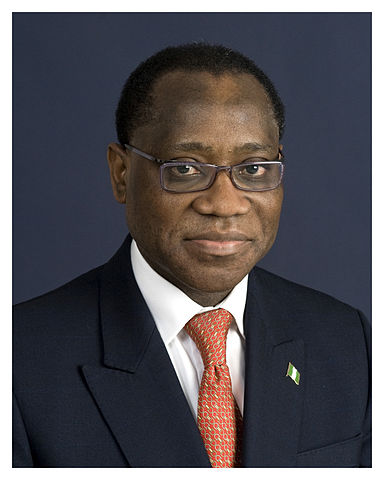 The IMF released its World Economic Outlook on Tuesday at the Annual Meetings in Lima, Peru. It provided a number of important updates. It revised down its growth forecast for Sub-Saharan Africa, especially Nigeria and South Africa. The IMF’s growth forecast for Nigeria has been cut to 4.0% for 2015 and 4.3% for 2016. These estimates are down from 4.5% and 5.0% as recently as July 2015; and are still above many private sector growth forecasts for Nigeria including our own.
The IMF released its World Economic Outlook on Tuesday at the Annual Meetings in Lima, Peru. It provided a number of important updates. It revised down its growth forecast for Sub-Saharan Africa, especially Nigeria and South Africa. The IMF’s growth forecast for Nigeria has been cut to 4.0% for 2015 and 4.3% for 2016. These estimates are down from 4.5% and 5.0% as recently as July 2015; and are still above many private sector growth forecasts for Nigeria including our own.
The IMF also heavily revised down its estimate of South Africa’s growth from 2.0% to 1.4% for 2015 and from 2.1% to 1.3% for 2016. These forecasts now appear much more realistic, but are still slightly above our own estimate of 1.4% for 2015 and 1.1% for 2016. The downward revision to South Africa’s growth outlook partly reflects the IMF’s concerns about the performance of emerging markets.
The IMF explained that the world economy is at the intersection of at least three powerful forces. The first major force is China’s economic transformation—away from export and investment led growth and manufacturing, in favour of a greater focus on consumption and services; the second force, and related to China’s slowdown, is the fall in commodity prices; and the third force is the impending increase in US interest rates, which can have global repercussions and add to current uncertainties. This means that external conditions are becoming more difficult for most emerging economies, including South Africa. This does not mean that external factors are entirely responsible for South Africa’s weak growth performance, but are exacerbating the weakness in the domestic economy caused by electricity outages, heightened labour market unrest, weak consumer and business confidence, policy uncertainty and a lack of fixed investment spending.



